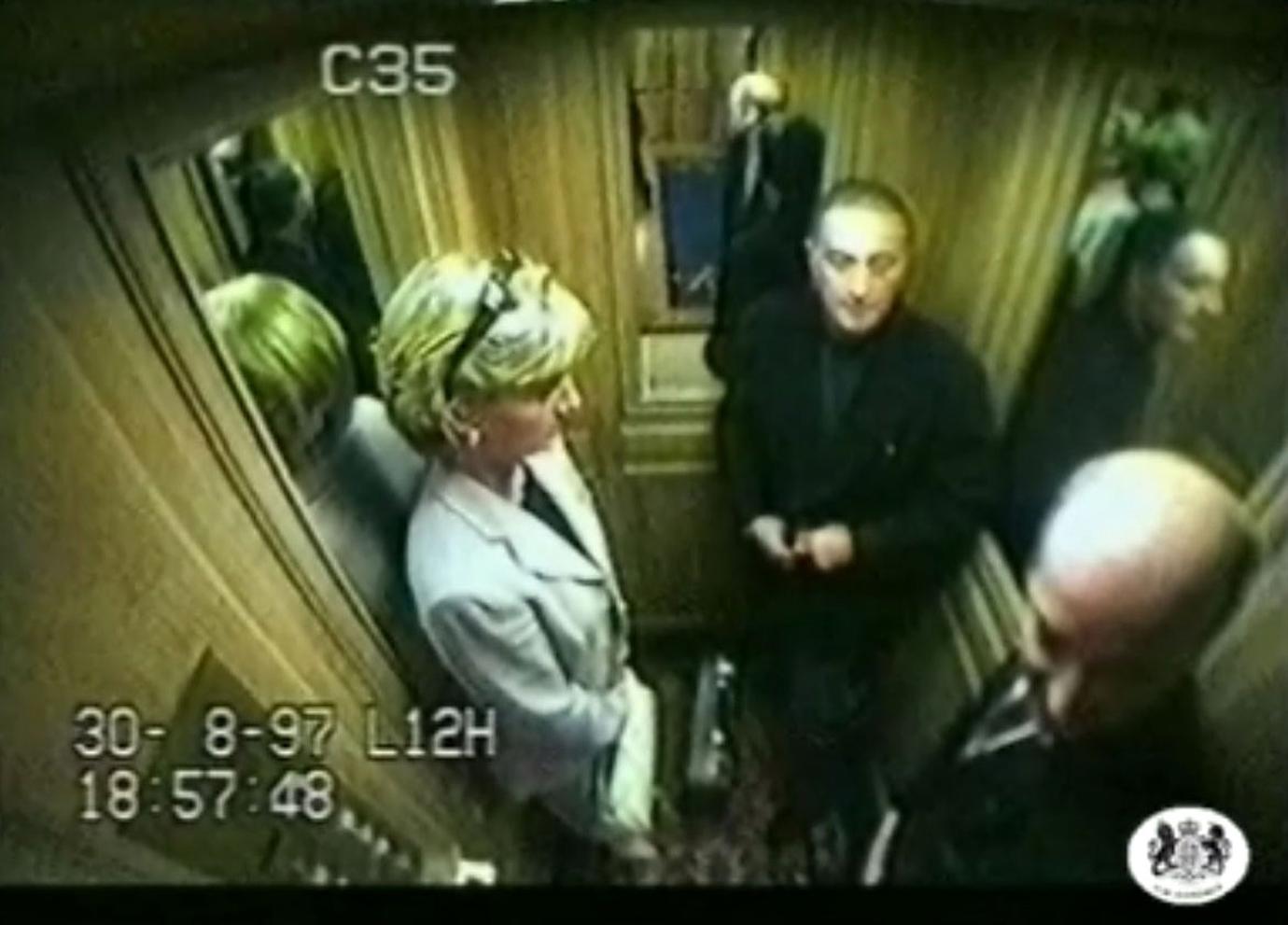The public's enduring fascination with figures like Princess Diana often takes many forms, some quite surprising. When words like "princesa diana gore" appear, they can spark a lot of thought about how we, as a society, remember and talk about very public lives, especially those that ended in a tragic way. It makes you wonder, you know, about the way certain phrases stick in our minds and what they might truly represent for different people.
It's a bit like looking at a very detailed painting; some parts are bright and clear, while others are rather shadowed, perhaps even difficult to look at. The way people talk about well-known individuals, particularly after they're gone, can sometimes include terms that are, well, quite striking. This particular phrase, for instance, seems to point to a more intense or perhaps a more uncomfortable side of how her story is told, or how some might choose to remember it, or even search for information about it. So, it really does make you think about the nature of public remembrance.
This discussion will try to look at how a person's life, especially one as widely seen as hers, becomes a part of our shared history, and how even challenging or difficult language becomes part of that story. We'll consider the impact of such terms on our collective understanding, and how the memory of a beloved figure continues to shape conversations, even when those conversations touch upon very sensitive ground. There's just a lot to unpack when you consider how public figures are remembered, and how language, even a phrase like "princesa diana gore," plays a role in that.
Table of Contents
- A Life Lived in the Public Eye
- Personal Details - A Royal Figure
- What Shapes the Narrative of Princesa Diana Gore?
- The Media's Portrayal of Princesa Diana Gore
- How Does Public Memory Process Princesa Diana Gore?
- Examining the Impact of Princesa Diana Gore on Collective Thought
- Can We Reconcile the Image with the Discussion of Princesa Diana Gore?
- What is the Lasting Echo of Princesa Diana Gore?
A Life Lived in the Public Eye
Diana Spencer, who later became Princess of Wales, led a life that, you know, was very much on display for the entire world to see. From her early days, she seemed to possess a natural way of connecting with people, a sort of warmth that drew folks in. Her journey from a young woman to a global symbol of royalty and compassion was something many watched unfold, sometimes with great interest, sometimes with a little bit of concern. She really did leave a mark on so many, becoming a figure people looked up to for her kindness and her dedication to helping others, which is something quite remarkable, actually.
Her public work, particularly her efforts for various charitable causes, showed a side of royalty that was, in a way, more accessible and more hands-on. She often visited those who were sick or in need, and she had a special touch, a genuine ability to make people feel seen and valued. This kind of approach, quite honestly, changed how many people viewed the royal family and what it meant to be a public servant. She brought a sense of human connection to her role, something that felt very real and honest, and that's a part of her story that people often remember with fondness, and perhaps a bit of sadness, too.
The story of her life, from her marriage to Prince Charles to her later work as an advocate for various causes, shows a person who was always under the public gaze. Every choice she made, every place she visited, seemed to be documented and discussed, sometimes in ways that were quite intense. This constant attention, as a matter of fact, made her one of the most photographed people on the planet. It meant that her personal story became, in a way, a shared experience for millions, a narrative that people felt a part of, whether they knew her personally or not. It's really quite something to think about, how one person's life can become so intertwined with the collective consciousness.
Personal Details - A Royal Figure
When we talk about Princess Diana, there are some key facts that help us understand who she was in the public eye. These details, you know, are pretty well-known, and they form the basic outline of her life story as many people recall it. It's kind of like the foundation upon which her public image was built, giving us a starting point for any discussion about her impact or her memory.
| Detail | Information |
|---|---|
| Full Name | Diana Frances Spencer |
| Born | July 1, 1961 |
| Place of Birth | Park House, Sandringham, Norfolk, England |
| Parents | John Spencer, Viscount Althorp (later 8th Earl Spencer) and Frances Shand Kydd |
| Married | Prince Charles (July 29, 1981) |
| Children | Prince William, Prince Harry |
| Died | August 31, 1997 |
| Place of Death | Paris, France |
These basic facts, honestly, serve as a kind of framework for understanding her public story. They tell us the who, what, and when, giving us a common set of points to refer back to when we talk about her. It's just a way to keep things clear, especially when discussions about her can sometimes get, well, a little bit complex. Knowing these things helps to ground any conversation about her legacy or how she's remembered, even when phrases like "princesa diana gore" come into play.
What Shapes the Narrative of Princesa Diana Gore?
It's pretty interesting to think about how a public story, especially one with a sad ending, gets told and retold over time. When terms like "princesa diana gore" pop up, they really highlight how different elements come together to shape what people believe or even just search for. There are so many things that play a part in creating this kind of public narrative, from what the news channels show to what people say to each other, and it's quite a mix, honestly. It's like trying to get a perfect diagnosis and treatment for a very complex public memory, where everyone has a slightly different piece of the puzzle, and sometimes those pieces seem to clash. What people choose to focus on, or even the words they use, really does tell us a lot about how a story evolves.
One big part of this is the sheer amount of information, or perhaps misinformation, that floats around. Just like a hospital working to ensure a very high success rate in certain procedures, the public often seeks a complete and clear picture of events. However, with a figure as widely followed as Diana, the sheer volume of stories, opinions, and even theories can make it hard to sort through everything. It’s almost like a constant process of trying to clear up a narrative, much like a medical team might perform a debridement to clean a wound, getting rid of anything that isn't helpful to understanding. This ongoing effort to make sense of things, even when some parts are difficult to face, really shapes what people think and feel about her story, including phrases like "princesa diana gore."
The emotional connection people had with her also plays a huge role. She was, for many, a symbol of grace and nobility, a kind of modern-day "princesa" in the truest sense, reflecting the elegance and charm that word often brings to mind. This strong feeling means that any discussion, especially one that includes a word like "gore," can be very sensitive. It’s a bit like seeing a beautiful, intricate floral lace detailing on a gown, and then encountering something that seems completely at odds with that image. The contrast itself creates a strong reaction, and that reaction, in turn, helps to shape the ongoing story, influencing what aspects are emphasized or even avoided in public talks about "princesa diana gore."
The Media's Portrayal of Princesa Diana Gore
The way the news and other forms of media talk about a public figure, especially after a sad event, has a really big impact on how everyone else sees things. For someone like Diana, the media was always there, capturing almost every moment, and this constant attention meant that their way of telling her story became, for many, the story itself. When it comes to phrases like "princesa diana gore," the media's choices in words, images, and angles can either soften or, you know, intensify the public's feelings about what happened. It's pretty clear that what gets reported, and how it's reported, really does shape our collective memory.
Think about how much information, sometimes very raw or unsettling, can be shared very quickly. In a way, it’s like a medical transfusion department, where information is constantly flowing, sometimes very fast, and it can affect the whole system. The need for news to be immediate often means that every detail, even the difficult ones, gets put out there for everyone to see and react to. This can lead to a kind of public discussion that, while perhaps aiming for truth, can also highlight the more challenging or even graphic aspects of a situation, which is perhaps how a term like "princesa diana gore" might gain traction. It's a tricky balance, honestly, between informing and sensationalizing, and the media walks that line constantly.
The choice of language, too, makes a difference. Media outlets, in their effort to describe events or capture public interest, sometimes use words that are quite strong. This can, in turn, influence how people search for information or what terms they use to discuss a topic. It's a bit like how a designer chooses specific colors, like blush pink or aqua blue, to evoke a certain feeling; similarly, words are chosen to create an impression. When the media focuses on the more stark or unsettling aspects, using words that are perhaps more direct or even shocking, it can contribute to the persistence of phrases like "princesa diana gore" in the public mind. It's a cycle, you know, where media coverage influences public language, and public language then, in a way, influences what the media feels compelled to cover.
How Does Public Memory Process Princesa Diana Gore?
It's quite a thing, how a whole group of people remembers a big event, especially one that carries a lot of sadness. When we talk about something as impactful as Princess Diana's story, and then add in a phrase like "princesa diana gore," it really makes you wonder how that memory gets sorted out in everyone's minds. It's not a simple process, you know, and it often involves a mix of personal feelings, shared stories, and what society as a whole decides to hold onto. It’s a bit like trying to put together a very complicated puzzle, where some pieces are bright and clear, and others are, well, a little bit darker, and people try to make sense of all of it.
Public memory isn't just about facts; it's also very much about feelings and what something means to people. For many, Diana was a symbol of hope and kindness, a true "princesa" who showed a different way of being royal, full of grace and charm. So, when a term like "gore" is connected to her, it can create a real clash in people's minds. It’s like seeing a collection of beautiful, vibrant styles and then being presented with something that seems to contradict all that beauty. This kind of tension makes the memory more complex, forcing people to reconcile different aspects of her story, the lovely parts with the very difficult ones. It’s a pretty intense thing, actually, to hold those two ideas at once.
The way a society processes such a memory can also involve a kind of collective effort to understand or even to heal from a public sadness. It's somewhat similar to how a medical team works together, using multidisciplinary collaboration to solve a
Related Resources:



Detail Author:
- Name : Godfrey Ryan
- Username : taryn70
- Email : schuppe.rossie@hotmail.com
- Birthdate : 1993-10-26
- Address : 7707 Crist Mountains Apt. 332 Kirlinmouth, TX 07983
- Phone : 1-940-876-1977
- Company : Jakubowski, Trantow and Hintz
- Job : Excavating Machine Operator
- Bio : Sequi corrupti molestiae aliquid dolor. Repellendus rem doloremque et enim. Explicabo laudantium sint quas. Cum neque non quod consequatur totam sint.
Socials
instagram:
- url : https://instagram.com/jayde5491
- username : jayde5491
- bio : Animi quo repudiandae sit. Iusto eum omnis aliquid minima at quos dicta.
- followers : 3827
- following : 207
facebook:
- url : https://facebook.com/millerj
- username : millerj
- bio : Reprehenderit deleniti harum quia exercitationem magnam et voluptas quas.
- followers : 1265
- following : 867
linkedin:
- url : https://linkedin.com/in/jmiller
- username : jmiller
- bio : Ut blanditiis quia ut optio voluptas.
- followers : 455
- following : 676
tiktok:
- url : https://tiktok.com/@miller2010
- username : miller2010
- bio : Et voluptas similique fuga possimus ab quisquam consequatur.
- followers : 1308
- following : 2061